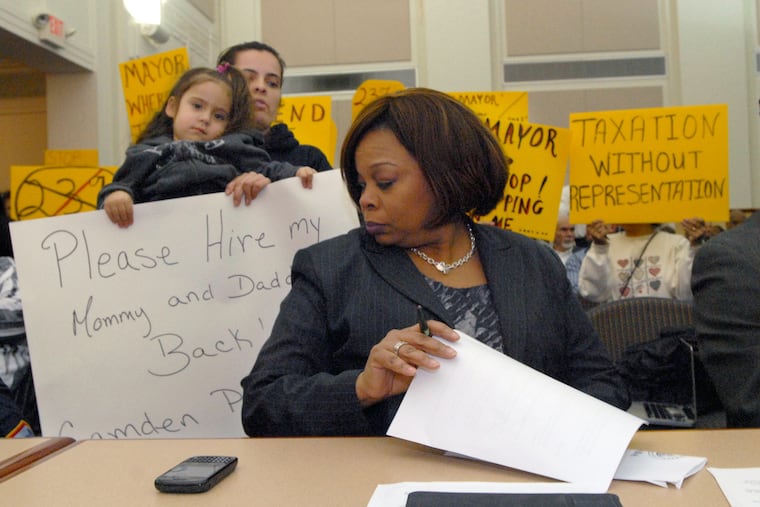A key lesson from the state interventions in Camden: local elections matter
As the state takeovers have shown, local officeholders wield considerable influence over our community’s daily life, yet their election campaigns are frequently taken for granted, if not ignored.

The excitement around this year’s presidential race is more than understandable with the sudden emergence of Vice President Kamala Harris as a viable opponent to former President Donald Trump. Polls show that most Americans are significantly more motivated to vote than they were just a couple of months ago.
At the same time, as a former Camden City Council member, I often find myself reminding voters in our community of a simple truth: local elections matter, too.
As the state interventions in Camden have shown, local officeholders wield considerable influence over our community’s daily life, yet their election campaigns are frequently taken for granted, if not ignored entirely. I, too, underestimated the importance of municipal governance until I assumed elected office in 2020.
After joining City Council, I quickly became aware of the limitations imposed on me and my fellow lawmakers by entities such as the New Jersey Department of Community Affairs, which exercises fiscal oversight and veto power over Council decisions in Camden. This dynamic fosters apathy and distrust among constituents, and councilmembers find themselves constrained in their legislative capacity.
For instance, Camden’s municipal land-use practices, particularly in planning and zoning, are flawed, hindering sustainable economic development and housing initiatives. Despite efforts to prioritize housing policy, my tenure as a councilmember was marked by political maneuvering that favored larger nonprofit entities over local property owners.
Development projects often overlook community needs and fail to address long-term sustainability concerns. Take, for instance, the expansion of educational and medical institutions into primary business corridors.
While seemingly beneficial, such decisions neglect crucial economic considerations. Nonprofit expansions diminish the local tax base, burdening homeowners with increased taxes over time, and threatening overall housing affordability for residents.
Scrutinizing zoning and planning decisions reveals a series of dismal economic outcomes that are caused by favoring institutional expansions. Such developments rarely translate into meaningful economic benefits for the local community, as demonstrated by the lack of local job creation.
It should not be surprising that those who approve such projects — who are often disconnected from the realities of daily life in Camden — fail to address the needs of the community they serve.
True inclusion would ensure the economic vibrancy of residents who wish to enjoy the benefits of redeveloping the land. Other local municipalities have, for example, created successful small-business corridors and allowed a clear path for investment by local residents.
Camden officials have blocked the ability for most people to share in the potential of the city’s economic recovery.
Camden officials have blocked the ability for most people to share in the potential of the city’s economic recovery by making it more challenging for local entrepreneurs who want to open businesses. These hurdles must be removed to ensure residents who wish to grow and thrive in their current neighborhoods are afforded that opportunity.
That will not be feasible until land-use laws are crafted to support growth and development by Camden residents instead of the current focus on enticing outsiders to come to the city.
One way to promote inclusion could be the appointment of new zoning and planning board members who are focused on creating economic opportunities for the residents.
Finally, the return of local control in governance would provide a sense of hope for residents who have lost faith in local leaders, legislators, and government in general.
Local control would also restore the proper authority to the city’s legislative branch and rebalance the municipal power structure, which currently impedes local investors from enjoying the full fruits of opportunity in our community.
And when those opportunities are denied, trust erodes — as evidenced by Camden’s declining population in recent years.
When a city excludes the people who reside in a community from enjoying the economic benefits of jobs, entrepreneurship, and homeownership, how can that lead to a better future for all of us?
Shaneka Boucher, a former educator who spent the last four years as a member of Camden City Council, is currently the CEO and founder of Social Responsibility Through Me, a nonprofit organization based in Camden.